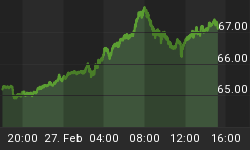Tim Berners-Lee, the "father of the Web," is unhappy with the state of his creation. The Web, which was created to empower the people, has been hijacked and centralized by governments and powerful corporations.
“We demonstrated that the Web had failed instead of served humanity, as it was supposed to have done, and failed in many places,” said Berners-Lee in a Vanity Fairinterview. According to Berners-Lee, the increasing centralization of the Web, has “ended up producing - with no deliberate action of the people who designed the platform - a large-scale emergent phenomenon which is anti-human."
“The spirit there was very decentralized," said Berners-Lee recalling the early days of the internet. "The individual was incredibly empowered. It was all based on there being no central authority that you had to go to to ask permission. That feeling of individual control, that empowerment, is something we’ve lost."
"The power of the Web wasn’t taken or stolen," notes the Vanity Fair commentary"We, collectively, by the billions, gave it away... Facebook, Google, and Amazon now monopolize almost everything that happens online, from what we buy to the news we read to who we like."
But Berners-Lee is fighting back. If the problems of today's internet come from centralization, the solutions could come from re-decentralization. In June 2016 Berners-Lee and and Brewster Kahle, founder of the Internet Archive, organized the first Decentralized Web Summit. Blockchain technology was considered an important part of the push to decentralize the web, as shown by a high-profile workshop titled “Blockchain and the Web,” organized by MIT Media Lab and the World Wide Web Consortium (W3C) soon after the Decentralized Web Summit. Related: Tech Employees Turn Activist Over Trump Immigration Policy
The Internet Archive has recently announced that the Decentralized Web Summit 2018: Global Visions/Working Code, organized by the Internet Archive and Aspiration will be held from July 31 to August 2 in San Francisco.
At the Decentralized Web Summit 2018, Berners-Lee will present Solid, ("social linked data"), a modular and extensible protocol and toolbox under development at MIT. The Solid project wants to build decentralized social applications while preserving, as much as possible, compatibility with existing W3C standards and protocols. The Solid platform is described in the project’s Github channel, aptly subtitled "Re-decentralizing the web."
The open source Solid software development is, slowing but steadily, attracting developers. "One person turns up every few days," said Berners-Lee commenting on the small but growing Solid development team. "Some of them have heard about the promise of Solid, and they are driven to turn the world upside down. There are people working in the lab trying to imagine how the Web could be different. How society on the Web could look different. What could happen if we give people privacy and we give people control of their data. We are building a whole eco-system.”
Hopefully, the upcoming Decentralized Web Summit will boost Berners-Lee's project. At this moment, the Solid documentation doesn't mention blockchain technology. But other decentralized internet projects do, and blockchain players such as Hyperledger and the Ethereum Foundation are sponsoring the Summit. It seems plausible that blockchain technology could be integrated into Solid at some point, perhaps to provide a native payment later.
By Giulio Prisco via Crypto Insider
More Top Reads From Safehaven.com:
















